 There are nine basic areas in New Hampshire that offer colleges and universities;
Concord, Durham, Hanover, Keene, Manchester, Nashua, New London, Plymouth,
and Rindge. Geographically, each location has different features, attracting
people from every corner of the United States to the schools that NH has
to offer. The north offers skiing opportunities, while the eastern seaboard
offers beaches, and beautiful landscapes. Many schools in New Hampshire
are in a close proximity to Boston, where people can take advantage of
the culture and night life of a city, and still have the advantages of
a quiet, suburban school.
There are nine basic areas in New Hampshire that offer colleges and universities;
Concord, Durham, Hanover, Keene, Manchester, Nashua, New London, Plymouth,
and Rindge. Geographically, each location has different features, attracting
people from every corner of the United States to the schools that NH has
to offer. The north offers skiing opportunities, while the eastern seaboard
offers beaches, and beautiful landscapes. Many schools in New Hampshire
are in a close proximity to Boston, where people can take advantage of
the culture and night life of a city, and still have the advantages of
a quiet, suburban school.
Concord is a very richly
historical area. Along with beauty and history, is a great opportunity
for higher education. New Hampshire Technical Institute, a division of
New Hampshire Department of Community Technical Colleges, is one of the
few technical colleges in New Hampshire. It is a public two-year community
technical college providing a high level of technical, academic and professional
preparation for the people in New Hampshire and the region. The Institute
has twenty-eight associate degree programs, two diploma programs and twenty
certificate programs. The Instituteís curriculum undergoes a process of
constant reevaluation and revision to remain up-to-date in the content
and methods of teaching.
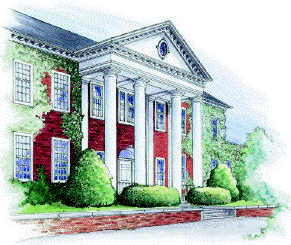
Also located in Concord
is the Franklin Pierce Law Center, an American Bar Association accredited
law school. Its relatively small student body is diverse, representing
thirty-two countries. U.S. News and World Report ranked Franklin Pierce
Law Center among the top five law schools in the nation for the study of
intellectual property law in its latest edition of America's Best Graduate
Schools 2001. [U.S. News and World] Being in Concord, this college offers
a beautiful scenic background, as well as a wealth of history.
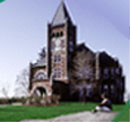 In Durham is located one of the most highly attended colleges in the state
of NH. The University of New Hampshire is a public University serving an
undergraduate population of 10,500 students. The setting of UNH Durham
couldnít be more ideal; itís located within 20 minutes of the Maine and
New Hampshire seacoasts, and one hour of Boston, Portland, and the White
Mountains. [UNH] Durham is not the only location of UNH. Within its seven
schools, the University offers 2,000 courses in over 100 majors. A comprehensive
land-, sea-, and space-grant university, UNH offers diverse curricula in
which students are encouraged to pursue their interests across disciplinary
lines. [UNH].
In Durham is located one of the most highly attended colleges in the state
of NH. The University of New Hampshire is a public University serving an
undergraduate population of 10,500 students. The setting of UNH Durham
couldnít be more ideal; itís located within 20 minutes of the Maine and
New Hampshire seacoasts, and one hour of Boston, Portland, and the White
Mountains. [UNH] Durham is not the only location of UNH. Within its seven
schools, the University offers 2,000 courses in over 100 majors. A comprehensive
land-, sea-, and space-grant university, UNH offers diverse curricula in
which students are encouraged to pursue their interests across disciplinary
lines. [UNH].

Hanover contains NHís
only Ivy League school, Dartmouth College. Dartmouth describes itself as
" [a college with] an excellent undergraduate program, small enough to
ensure the intimacy of a classic liberal arts college, with instruction
provided by faculty members committed to undergraduate teaching; yet one
large enough to provide faculty depth and curricular breadth of a kind
typically found only at research universities." It enrolls approximately
4,300 undergraduates in the liberal arts and 1,200 graduate students. Dartmouth
Medical School is the fourth oldest in the country, and also holds the
first graduate school of management in the world: the Amos Tuck School
of Business Administration, established in 1900. Itís location is beautiful;
close to the Vermont border, and the White Mountains, it is a great place
to go for skiing, hiking, and other mountain sports.
Keene New Hampshire
contains both public and private universities. Antioch New England Graduate
School is a small private school. It is a branch of Antioch University,
which has five campuses nationwide. It offers masters programs in applied
psychology, education, environmental studies, and organization & management.
It also offers doctoral programs in clinical psychology and environmental
studies. Antioch New England Institute, A nonprofit environmental and educational
consulting organization of Antioch New England Graduate School, promotes
a vibrant and sustainable environment, economy, and society through informed
civic engagement. They provide training and resources to communities and
organizations in the following areas: environmental education, leadership
training, environmental policy development, nonprofit management, exhibit
planning and design, public administration, facilitation, and democracy-building.
[Antioch, News Events, and Other Items of Business].
The public school in
Keene is Keene State College. Because Keen is a small city in the scenic
Monadnock Region of New Hampshire, many students are attracted to this
campus by itís natural beauty and landscapes. Some of the most popular
majors include education, psychology, and management, but other than that,
Keene offers over forty other areas of study [Keen State College] Keene
also offers a good independent study and faculty research program.
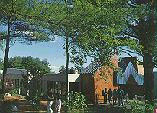 Manchester too includes both public and private education opportunities.
New Hampshire College is "a private, coeducational college known for its
solid educational programs and excellent connections with employers." [NHC]
The college awards associate's and bachelor's degrees in business, liberal
arts and hospitality administration, as well as the associate of applied
science degree in culinary arts. New Hampshire College also awards master's
and doctoral degrees through the Graduate School of Business. The campus
is on the banks of the Merrimack River in Manchester, NH, close to Boston
and the beaches of NH.
Manchester too includes both public and private education opportunities.
New Hampshire College is "a private, coeducational college known for its
solid educational programs and excellent connections with employers." [NHC]
The college awards associate's and bachelor's degrees in business, liberal
arts and hospitality administration, as well as the associate of applied
science degree in culinary arts. New Hampshire College also awards master's
and doctoral degrees through the Graduate School of Business. The campus
is on the banks of the Merrimack River in Manchester, NH, close to Boston
and the beaches of NH.
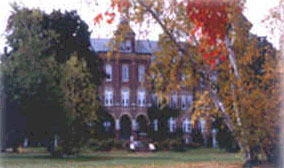 Saint Anslem College was founded in 1889 by the Benedictine monks of St.
Mary's Abbey of Newark, New Jersey. It is a private Catholic college. "The
Benedictine
Saint Anslem College was founded in 1889 by the Benedictine monks of St.
Mary's Abbey of Newark, New Jersey. It is a private Catholic college. "The
Benedictine
tradition of leadership in education spans
more than 15 centuries and the strong influence of this ageless tradition
helps to create at the college a unique educational environment." [St.
Anslems] The college is dually noted for its challenging academic atmosphere
and its nationally recognized humanities program, "Portraits of Human Greatness".
UNH at Manchester is
the sixth branch of the University of New Hampshire that is located throughout
the state. It is considered UNHís commuter college, and provides the Merrimack
Valley with a educational and cultural resources and opportunities. The
college is founded on a strong liberal arts base, and is mainly a place
for adult education.
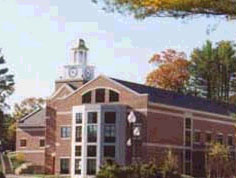
Nashua New Hampshire
contains one private school; Daniel Webster College. Daniel Webster College
is a high-tech college with a "small college feel". [DWC] The framework
of Daniel Webster College is built on an upgraded Ďnetwork systemí built
only last year. . Information Technology Services, the on campus service
that runs that network, is "committed to keeping the college running smoothly
on the information superhighway." Daniel Webster also offers many academic
support services for itís students. Three support areas, the Writing Center,
the Math/Science Support Center, and Academic Support Services, are available
to all students there. Daniel Webster College is a very student oriented
school.
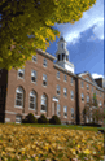 New London offers one private school, Colby-Sawyer College. Colby-Sawyer
is an independent, coeducational, residential, undergraduate college, which
offers studies in both the liberal arts and sciences. Colby-Sawyer offers
classes ranging from art, business management, child development, history
society and culture, biology, nursing, and psychology.
New London offers one private school, Colby-Sawyer College. Colby-Sawyer
is an independent, coeducational, residential, undergraduate college, which
offers studies in both the liberal arts and sciences. Colby-Sawyer offers
classes ranging from art, business management, child development, history
society and culture, biology, nursing, and psychology.
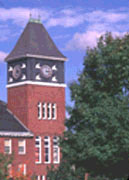
Plymouth State College
is located in Plymouth New Hampshire. Itís a residential campus school
in the University System of New Hampshire. This college prides itself in
a great education at a fraction of the price of a private college. Against
the "dramatic backdrop" in the foothills of the White Mountains, Plymouth
provides a "safe, dynamic, learning community". [Plymouth State College]
It is located , 45 miles north of Concord, and 120 miles north of Boston.
Plymouth State enrolls about 3,500 undergraduates and 500 graduate students
in 50 undergraduate programs in liberal arts, education, business, and
physical education, two graduate programs; the CAGS program and a continuing
education division.
Franklin Pierce College
is located in beautiful, yet remote, Rindge New Hampshire. The community
within this college is small, yet big enough to be cultural and diverse.
Over ninety percent of students at FPC live on campus, which is on a very
beautiful plot of land, surrounded by colorful trees in the autumn, and
wonderful blankets of white snow in the fall.
From liberal arts to
technical schools, Ivy League to community college, autumn to winter, and
mountains to beaches, one can plainly see that New Hampshire offers many
opportunities for the student. It is an ideal place to educate the entire
person, body and soul. |


![]()